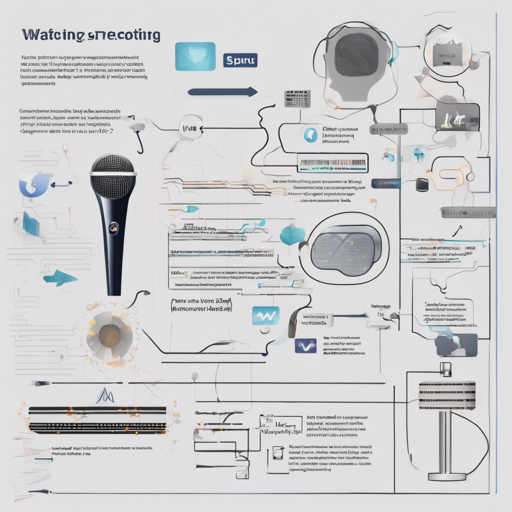If you’re venturing into the world of automatic speech recognition (ASR), you’ve probably encountered the term Wav2Vec2. This powerful tool provided by Hugging Face’s Transformers library allows us to turn audio into text. In this guide, we’ll take a step-by-step approach to help you implement Wav2Vec2, aimed at making you comfortable with the process while ensuring clarity.
How to Use Wav2Vec2 for Speech Recognition
To start transcribing audio files into text with Wav2Vec2, follow the steps below:
- Install Required Libraries: First, ensure you have the necessary libraries by installing them using pip:
pip install transformers librosa torchlibrosa library to load and prepare your audio file for processing.import librosa
file_path = "path_to_your_audio.wav"
audio, sr = librosa.load(file_path)
audio = librosa.resample(audio, orig_sr=sr, target_sr=16000)from transformers import Wav2Vec2CTCTokenizer, Wav2Vec2ForCTC, Wav2Vec2Processor, Wav2Vec2FeatureExtractor, Wav2Vec2ProcessorWithLM
model_path = "mushrafi88/wav2vec2_xlsr_bn_lm"
model = Wav2Vec2ForCTC.from_pretrained(model_path).to("cuda")
processorlm = Wav2Vec2ProcessorWithLM.from_pretrained(model_path)
processor = Wav2Vec2Processor.from_pretrained(model_path)inputs = processor(audio, sampling_rate=16_000, return_tensors="pt").to("cuda")with torch.no_grad():
logits = model(**inputs).logits
transcription = processorlm.batch_decode(logits.cpu().numpy()).text
pred_ids = torch.argmax(logits, dim=-1)[0]
wav2vec2 = processor.decode(pred_ids)
wav2vec2_lm = transcription[0]
torch.cuda.empty_cache()
print(wav2vec2)
print(wav2vec2_lm)Understanding the Code with an Analogy
Imagine you are a librarian helping a reader find books on a specific topic. In our analogy:
- Library (Wav2Vec2 Model): The model acts as a massive collection of books (data on speech) that can recognize and comprehend spoken language.
- Reader (Audio Input): The audio file you provide to the system serves as the reader asking for information.
- Indexing System (Processor): Just like a librarian would categorize books for easy retrieval, the processor organizes incoming audio data so the model can analyze it efficiently.
- Transcription (Output): The final output is akin to the librarian providing the reader with the needed book information—in this case, the transcribed text.
Troubleshooting Common Issues
While implementing Wav2Vec2, you might face some common challenges:
- Audio Not Transcribing: Verify if the audio file format is supported and that the audio is clear enough for accurate recognition.
- Running Out of Memory: Ensure you clear CUDA cache using
torch.cuda.empty_cache()and consider reducing audio length or model size. - Dependencies Not Installed: Double-check that all libraries are correctly installed and your Python environment is configured properly.
For more insights, updates, or to collaborate on AI development projects, stay connected with fxis.ai.
Conclusion
By following the steps outlined above, you will have a functional transcription setup using Wav2Vec2. It’s a remarkable tool that opens doors to various applications in voice recognition technology.
At fxis.ai, we believe that such advancements are crucial for the future of AI, as they enable more comprehensive and effective solutions. Our team is continually exploring new methodologies to push the envelope in artificial intelligence, ensuring that our clients benefit from the latest technological innovations.

